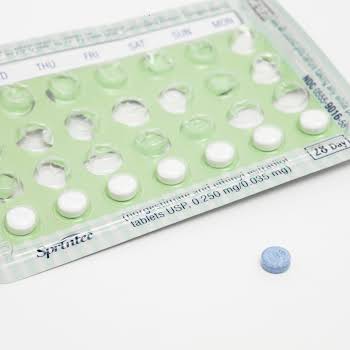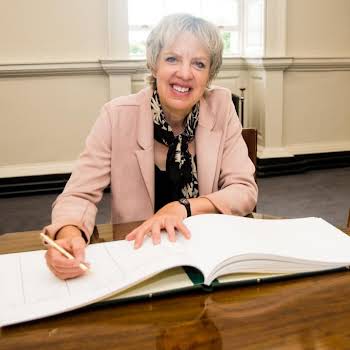RODNAE Productions / Pexels
PCOS: ‘I was so naive about my own fertility and I knew so little about my own body, it was embarrassing’
Despite being incredibly common, polycystic ovary syndrome (PCOS) is typically only diagnosed when women begin trying for children. One woman speaks about her fertility journey with PCOS and an expert explains what you can do.
Recently, we touched on how undereducated women and girls can be when it comes to their own physiology, especially when talking about fertility. The bulk of our formal sexual education comes from biology class as a gangly teen and one or two awkward hours on how not to get pregnant. Beyond that, we are typically left to our own devices, furtively Googling things and having quiet conversations with friends.
The result is that there are a number of incredibly common sexual health-related issues that only come to the fore when women are trying to get pregnant. Endometriosis, for example, has only really entered the public dialect in recent years, mostly thanks to cultural influences like Sally Rooney’s depiction of it in Conversations with Friends, rather than medical advice.
Polycystic Ovary Syndrome
Polycystic ovary syndrome, or PCOS, is another common issue for women that can impact fertility. When someone has PCOS, their ovaries are often unable to ovulate and this can create irregular periods and difficulties conceiving alongside other symptoms. While the exact causes aren’t really known, it is thought to be related to abnormal hormone levels and it can run in families.
It’s estimated that as many as 1 in five women of childbearing age have Polycystic Ovarian Syndrome (PCOS) according to the HSE. Typically, it takes a collective of symptoms to confirm a diagnosis of PCOS, including irregular or no periods, excessive hair growth, weight gain, thinning hair and hair loss and oily skin or acne. Many people may be unaware of it as contraceptives like the pill can mask many of the symptoms. PCOS often goes undiagnosed until trying for children, and fertility issues become apparent.
PCOS and Fertility
“When I was diagnosed with PCOS I was in my late 20s and on reflection, it was definitely something I should have known about my body but was completely clueless about,” says Lizzie, who spent three years trying to conceive before having a beautiful baby boy last year. Commenting that her periods were irregular after coming off the pill and experiencing weight gain to her GP, she was put forward for a scan where her PCOS diagnosis was confirmed. “At the time, I didn’t really know too much about it or how it might impact me having children, I don’t even think I spoke to the GP about it after it was confirmed.”
However, her symptoms weren’t exactly new to her either. She had been experiencing irregular periods since her teen years but wasn’t aware that might be an indicator of something more serious. “When I was younger, I kind of welcomed it because I wasn’t having a period every month which I naively thought, ‘oh brilliant I don’t have any period admin each month’.”
Deciding to go on the pill, Lizzie’s period appeared to regulate into that very fixed 28-day cycle and she didn’t give it another thought. “I went on the pill with no real understanding of what it might do in terms of masking my natural cycle.” It is only with hindsight and many hours of research that Lizzie understood that the monthly bleed you experience on the pill isn’t really a true period.
A year after her diagnosis, she and her partner decided to start trying for children and her PCOS came to the fore once again. With very little follow-up in terms of what her PCOS diagnosis meant, she admits that her education on the subject largely fell on her own shoulders. “It was a lot of me Googling, and a lot of hearsay from people who said, ‘Oh, you know, my cousin had PCOS and got pregnant’, saying helpful things like, ‘you just need to relax and it’ll happen when it happens’ and all that crap.”
Lizzie's fertility journey
PCOS can have a very detrimental effect on trying for a baby because, as Dr Eithne Lowe, consultant in Reproductive Medicine at Waterstone Clinic, explains, “PCOS can affect ovulation and if the ovaries cannot ovulate, you simply cannot become pregnant without help.”
I knew that even the super faint line meant I was pregnant. I just went from nought to super excited.
Following a series of tests to rule out other factors such as tube blockages, it was only when Lizzie began charting her own basal temperature that she felt she gained any kind of control over her own fertility. “I had scans to see if I had ovulated but it’s kind of hit and miss because if you have irregular periods, and therefore irregular cycles, your doctor can’t say, ‘come in on, you know, day 14 of your cycle we’ll see if you’ve ovulated’ because you might not ovulate until day 35 of your cycle.” It was only by coincidence, during a scan to assess her womb and ovaries, that Lizzie was able to confirm that she had ovulated. Flagging with the sonographer that, according to her temperature tracking, she had just ovulated, the sonographer could see onscreen that she had.
“That was a relief to know I had ovulated but it didn’t mean that I would ovulate on that day of my cycle every cycle because it could be anything between 30 days and 70 days.” Similarly, while the basal temperature readings allowed her to gauge when she had ovulated, it wasn’t exactly useful when it came to family planning. “It’s something that’s retrospective, but it was still good to see that I did ovulate and I was starting to understand more about my body. Tracking my temperature taught me more about my cycles than anything else.”
It took two and a half years of tests and trying and looking into IVF before Lizzie saw a second line on a pregnancy test. “I knew that even the super faint line meant I was pregnant. I just went from nought to super excited.” A pregnancy that left her nauseous and vomiting right up until 37 weeks, she admits it was still a relatively easy lockdown pregnancy that allowed her to work from home and avoid telling people until she was ready. However, even after the birth of her baby boy last summer, Lizzie continued to feel the influence of her PCOS diagnosis on her milk supply. “In those first few heartbreaking weeks of really struggling to get my baby back up to his birth weight, a nurse finally said to me that my breastfeeding issues could be linked to PCOS.” This came after she had her GP check-up and visited several midwives who never flagged the potential connection. “It was such a relief to almost have a reason why I couldn’t give him everything he needed and made me feel less of a failure but I wish I’d known it from day one that I might struggle because of it.”
“Those pesky hormones!” as Lizzie put it, can continue to impact beyond fertility and Dr Lowe’s advice is to speak to your GP if you have any symptoms. “PCOS can increase your chances of developing other health problems in later life and if you are trying to conceive, it’s important to see a fertility specialist so that you can make a plan.”























